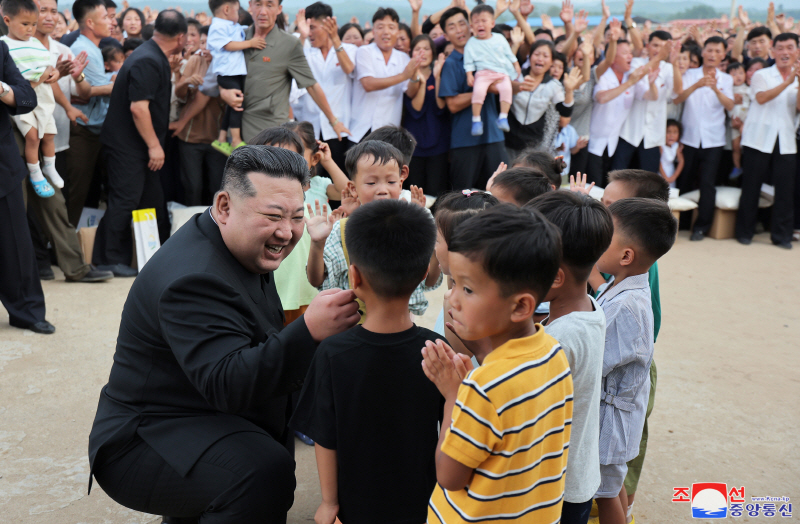This summer’s record-breaking heatwaves and the recent floods at the end of last month in the northern border regions of North Korea, such as Pyonganbuk-do and Jagang-do, are emerging as significant threats to the regime.
Of particular concern is the surge in rice and corn prices, essential staples in North Korea, which have spiked since the flood damage, raising fears of a worsening food crisis—a critical issue closely tied to the food supply, considered the Achilles’ heel of Kim Jong-un’s regime.
According to the latest North Korean market price information released by Asia Press, a Japan-based North Korea-focused media outlet, the price of rice in North Korea as of August 9 was 6,800 won ($7.50) per kilogram.

After exceeding 7,000 won for the first time this year during the lean season at the end of April, rice prices had dropped to 6,200 won by July 26, coinciding with the harvest season for barley and wheat, which are typical double-crop grains. However, prices surged by around 10% in the aftermath of the flood. Compared to the same period last year (6,100 won), this represents an increase of over 10%.
The price of corn, a staple food for the North Korean population, has also followed a similar trend. Despite the ongoing harvest season, corn prices stood at 3,400 won and 3,200 won per kilogram on August 2 and 9, respectively. These prices are comparable to those typically seen during the lean season in March and April (3,000–3,500 won). Compared to the same period last year (2,800 won), corn prices have risen by nearly 15%.
The food supply issue is a top priority for Kim Jong-un, who has shown particular interest in this area as it is directly linked to public sentiment, especially in the context of the prolonged economic hardship caused by international sanctions. Kim’s recent appearances, where he is seen continuously addressing the needs of flood victims, may indicate his awareness of the potential for public discontent.
North Korean media have emphasized that the primary goal of this year’s economic efforts is to “secure the grain supply,” underscoring the importance of increasing agricultural production. However, future weather conditions do not seem favorable.

The United Nations Food and Agriculture Organization (FAO) recently released a report citing the latest weather forecasts, predicting above-average rainfall in North Korea from August through October. The report expressed concerns that heavy rain and flooding could severely damage crops and displace people. The typhoons expected to hit the Korean Peninsula from late August could have a direct impact on North Korea’s food situation.
Despite the flood damage, North Korea has reportedly rejected Russia’s offer of support, opting instead to focus on “self-recovery.” Accepting external assistance could be seen as an admission of the regime’s failure. However, experts suggest that if North Korea faces additional natural disasters, it may find it difficult to refuse external help.
Jung Yoo-seok, a research fellow at the Korea Institute for National Unification, stated, “North Korea is pursuing self-recovery by utilizing the backdoor opened by Russia’s sanctions, but if another natural disaster occurs, the food situation could deteriorate rapidly. Depending on the circumstances, North Korea may have to request assistance from allies like China and Russia or international organizations.”
Meanwhile, North Korea has remained silent on President Yoon Suk Yeol’s “Unification Doctrine” proposal. On this matter, Koo Byung-sam, spokesperson for the Ministry of Unification, stated in a regular briefing, “As North Korean media have reported, the scale of the recent flood damage is significant. This could exacerbate various livelihood difficulties and potentially influence North Korea’s response and attitude.”
BY YEONGGYO CHUNG, YOUNGNAM KIM [chung.yeonggyo@joongang.co.kr]




